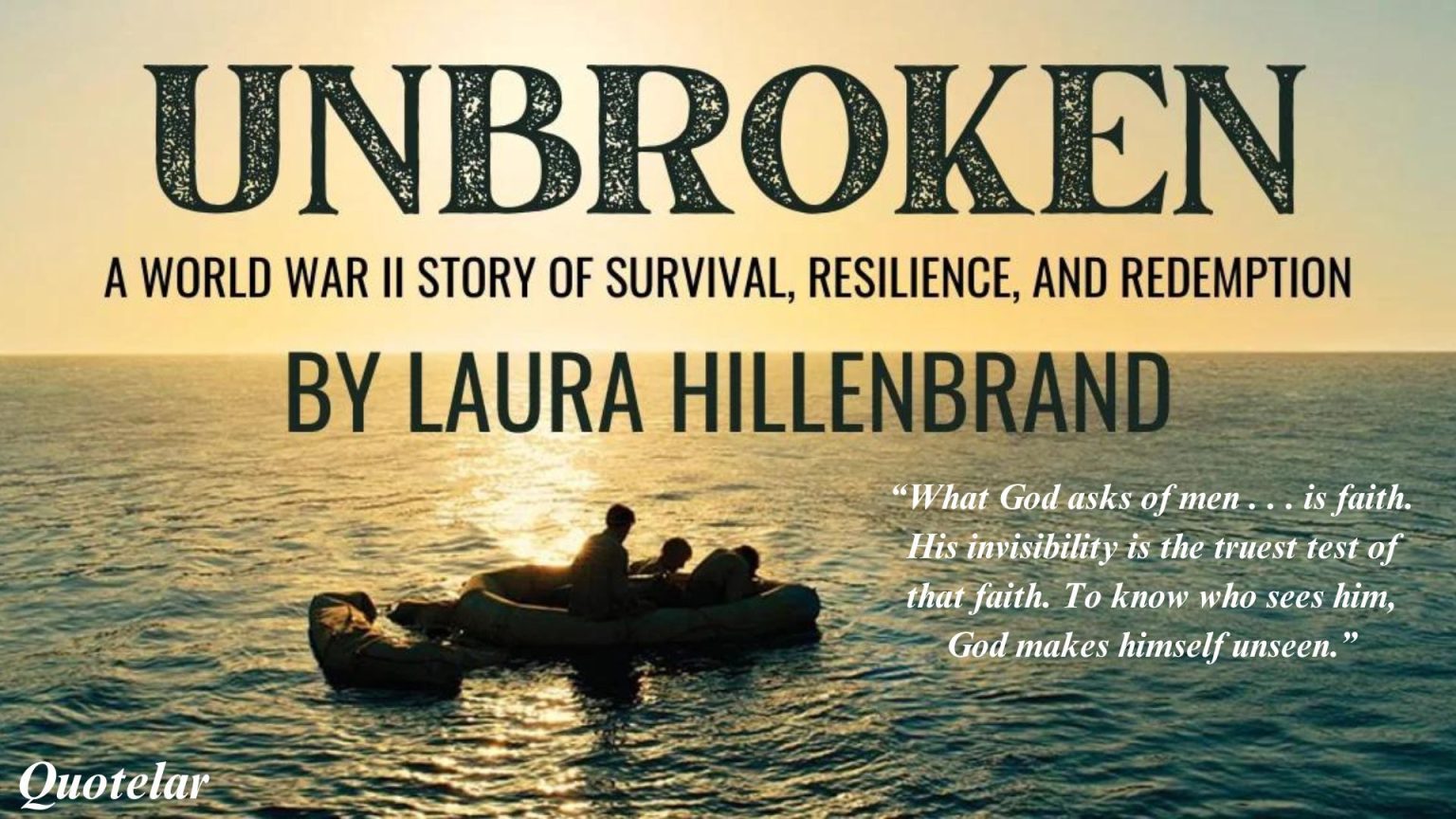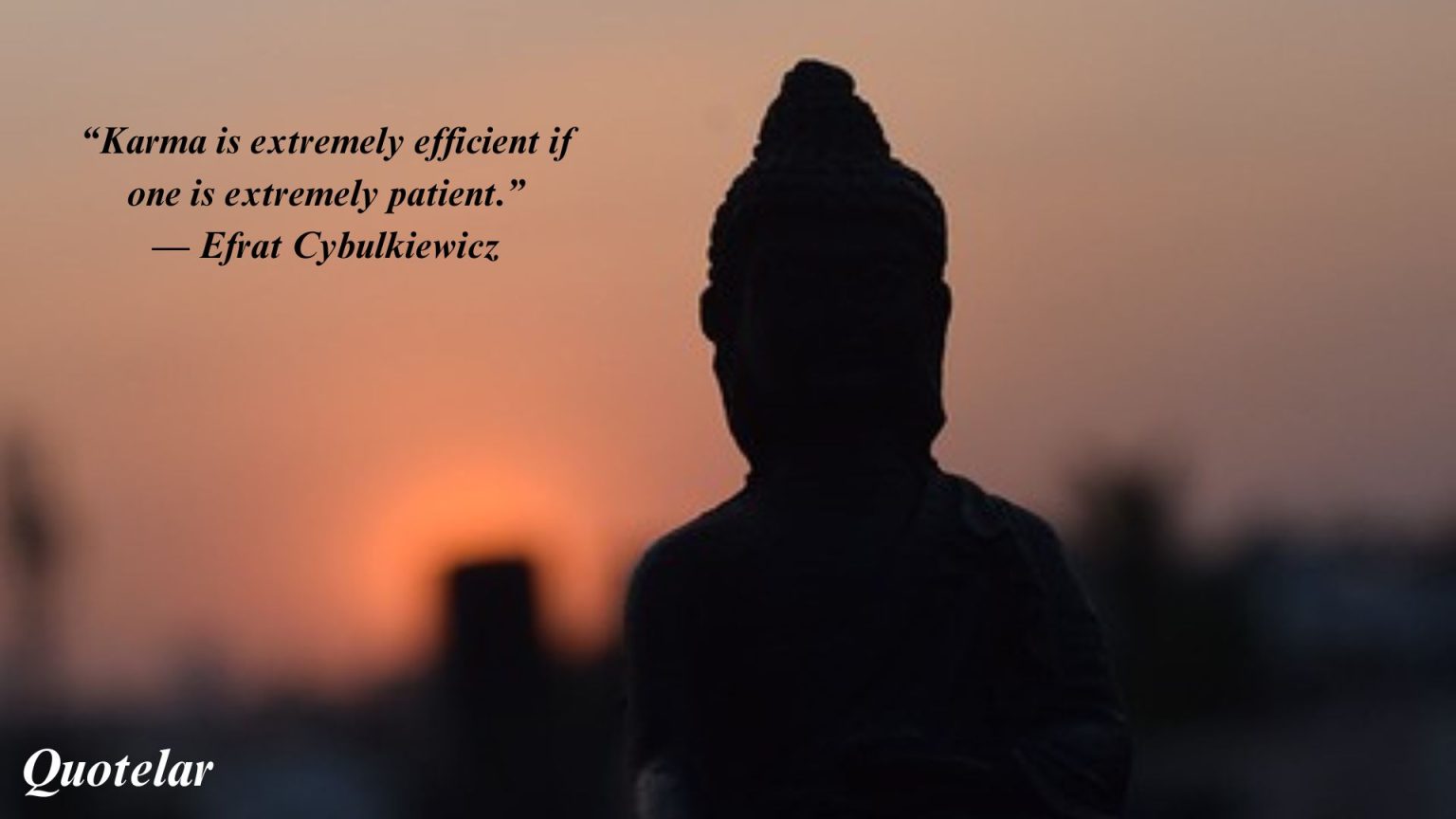“Unbroken” recounts the incredible true story of Louis Zamperini, an Olympic athlete turned World War II bombardier. After his plane crashes in the Pacific, Zamperini survives 47 days on a raft before being captured by the Japanese. Enduring torture and brutality in prisoner-of-war camps, he never loses hope. Despite post-war struggles with PTSD, Zamperini finds redemption through faith and forgiveness. Laura Hillenbrand’s gripping narrative showcases Zamperini’s resilience, highlighting the triumph of the human spirit in the face of unimaginable adversity. The book’s success led to a film adaptation directed by Angelina Jolie in 2014.
Unbroken Book Quotes
1. “A month earlier . . . Zamperini had been one of the greatest runners in the world, expected by many to be the first to break the four-minute mile, one of the most celebrated barriers in sport. Now his Olympian’s body had wasted to less than one hundred pounds and his famous legs could no longer lift him. Almost everyone outside of his family had given him up for dead.”
2. “That night, before he tried to sleep, Louie prayed. He had prayed only once before in his life, in childhood, when his mother was sick and he had been filled with a rushing fear that he would lose her. That night on the raft, in words composed in his head, never passing his lips, he pleaded for help.”
3. “If they were going to die in Japan, at least they could take a path that they and not their captors chose, declaring in this last act of life, that they remained sovereign over their own souls.”
4. “They bowed their heads together as Louie prayed. If God would quench their thirst, he vowed, he’d dedicate his life to him. The next day, by divine intervention or the fickle humors of the tropics, the sky broke open and rain poured down. Twice more the water ran out, twice more they prayed, and twice more the rain came.”
5. “Confident that he was clever, resourceful, and bold enough to escape any predicament, he was almost incapable of discouragement. When history carried him into war, this resilient optimism would define him.”
6. “The guards sought to deprive them of something that had sustained them even as all else had been lost: dignity.”
7. “What the Zamperinis were experiencing wasn’t denial, and it wasn’t hope. It was belief. . . . Their distress came not from grief but from the certainty that Louie was out there in trouble and they couldn’t reach him.”
8. “Without dignity, identity is erased.”
9. “He could have ended the beatings by running away or succumbing to tears, but he refused to do either. ‘You could beat him to death . . . and he wouldn’t say ‘ouch’ or cry.’ He just put his hands in front of his face and took it.”
10. “The paradox of vengefulness is that it makes men dependent upon those who have harmed them, believing that their release from pain will come only when their tormentors suffer.”
11. “The same attributes that had made him the boy terror . . . were keeping him alive in the greatest struggle of his life.”
12. “At that moment, something shifted sweetly inside him. It was forgiveness, beautiful and effortless and complete. For Louie Zamperini, the war was over.”
13. “Soldiers and civilians, intensely propagandized by their government, usually carried their own caustic prejudices about their enemies, seeing them as brutish, subhuman beasts or fearsome ‘Anglo-Saxon devils.’ This racism, and the hatred and fear it fomented served as an accelerant for the abuse of Allied prisoners.”
14. “A lifetime of glory is worth a moment of pain.”
15. “Life was cheap in war.”
16. “Dignity is as essential to human life as water, food, and oxygen. The stubborn retention of it, even in the face of extreme physical hardship, can hold a man’s soul in his body long past the point at which the body should have surrendered it.”
17. “For Louie and Phil the conversations were healing, pulling them out of their suffering and setting the future before them as a concrete thing . . . With these talks, they created something to live for.”
18. “And like everyone else, Louie and Phil drank. After a few beers, Louie said, it was possible to briefly forget dead friends.”
19. “If you will save me, I will serve you forever.”
20. “When he thought of his history, what resonated with him now was not all that he had suffered but the divine love that he believed had intervened to save him.”
21. “Though the captives’ resistance was dangerous, through such acts, dignity was preserved and through dignity, life itself.”
22. “Degradation could be as lethal as a bullet.”
23. “This self-respect and sense of self-worth, the innermost armament of the soul, lies at the heart of humanness.”
24. “Men subjected to dehumanizing treatment experience profound wretchedness and loneliness and find that hope is almost impossible to retain.”
25. “What God asks of men . . . is faith. His invisibility is the truest test of that faith. To know who sees him, God makes himself unseen.”








